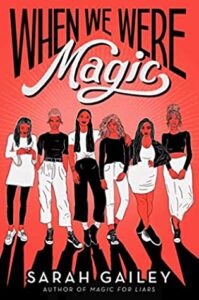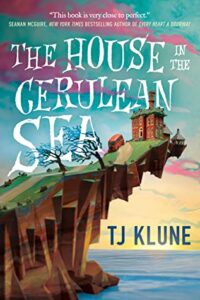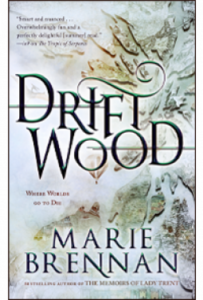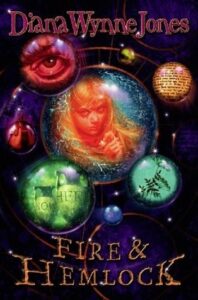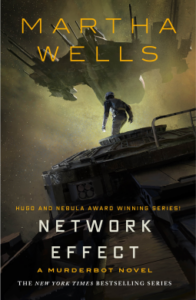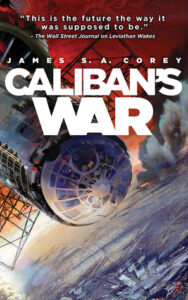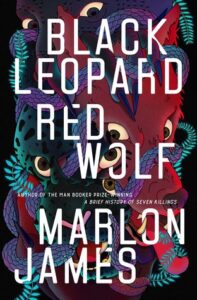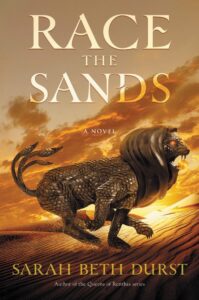 Race the Sands, Sarah Beth Durst
Race the Sands, Sarah Beth Durst
I’ve been meaning to try a book by Sarah Beth Durst for a while, largely due to Mogsy, and finally this one appealed at the right moment. (I joke that it’s a bit like all the books I have are waiting in an Underground station, and they get read when they manage to dash on board one of the attention-trains passing through my mind at any one moment. There are a lot of trains! But they go very fast, and the platforms are very crowded.) Actually, I read it for the Clear Your Shit readathon, for the prompt about a pretty cover. Just look at that thing!
Anyway, I’m glad I gave this a go even though I haven’t read the other book by Sarah Beth Durst that I have, because I loved it. It’s set in the fantasy kingdom of Becar, where the emperor has recently died, and unrest is stirring in the streets… and on the racetrack, where it’s nearly time for the races that pit humans riding monsters against each other. Trainer Tamra suffered disgrace at the last races when her rider died, but she’s eager to redeem herself and earn enough money to keep her daughter with her. She has to set out and acquire a new monster for the races, and a new rider to go with it… which is how she meets Raia, who’s running from problems of her own.
There are some pretty predictable twists to the plot: as soon as a certain thing got mentioned, it was obviously significant to the plot, and that meant a big reveal was just… obvious. (I’m trying not to say too much here!) The ultimate bad guy was kind of obvious too, after a certain point. But there were a few surprises (the fate of one particular character, which made me gasp in outrage while on the darn treadmill reading!) and in the end… Tamra’s determination, her knowledge of herself and what’s important, pretty much carried the whole book for me. I could believe in her tough exterior and her caring heart, her love for her daughter and for the rider she’s training. I didn’t have to believe that she was an amazing, perfect person: it’s clear that she’s not. But I could believe she was a strong person, who would do whatever it took for her own reasons as much as for anyone else’s.
Raia was a less strong character for me — she remains fairly soft-hearted, despite becoming a rider in the races, and it sort of doesn’t quite ring true in a way that she remains so untouched by the violence and gore. There were some great moments where she had to face her past, though, and in the end it all just worked really well for me.
I suppose my main complaint is that there were one or two things that felt unsatisfying: one particular betrayal and one particular death, for instance, didn’t stand out for me very much because I never quite saw enough of the character to strongly form an impression of who they were and what they were doing, what they stood for. Finding out that they weren’t what I expected didn’t mean very much, because I didn’t know enough about the character to feel like I could judge.
Still, overall, I found it really enjoyable, and somewhat to my own surprise I think I’ll give it my rarest rating.

